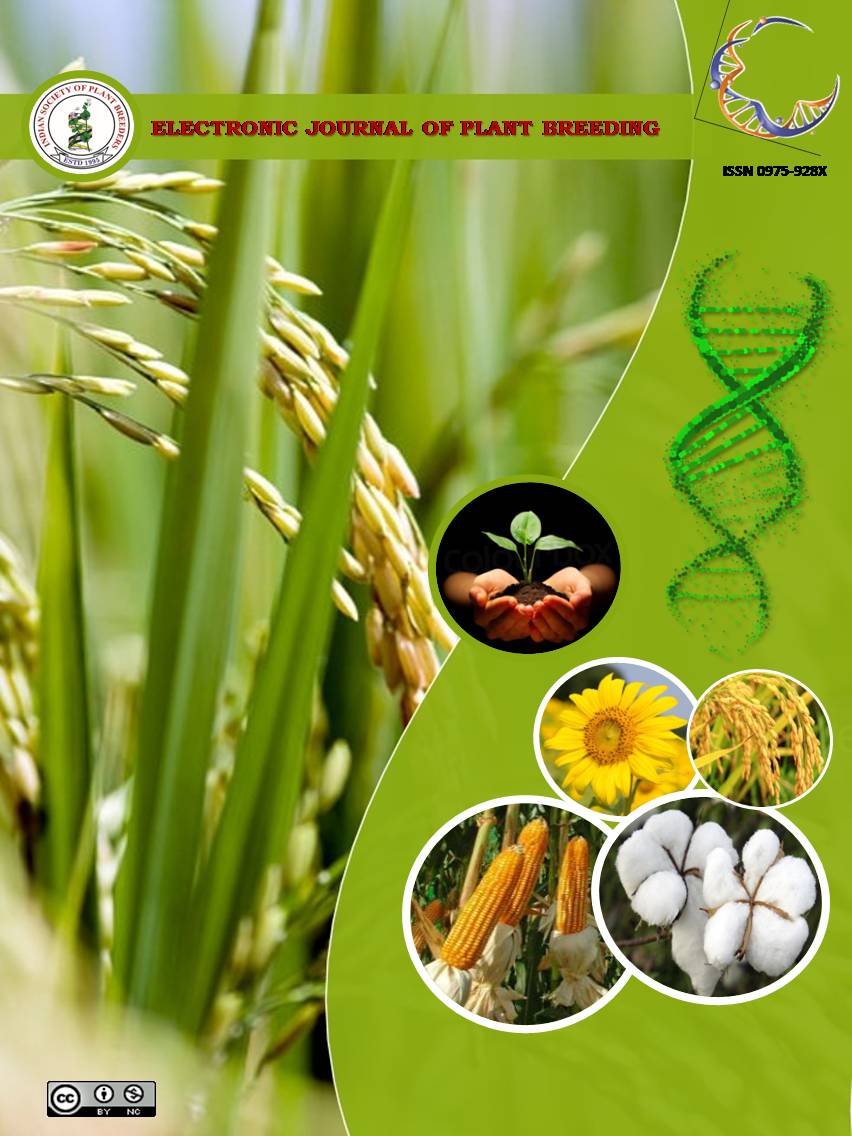Combining ability and heterosis studies for seed cotton yield and fibre quality traits in hirsutum cotton
Abstract
Fifty intra hirsutum hybrids developed by involving five female and ten testers were evaluated to study gene action, combining ability and heterosis. The analysis of variance indicated substantial variability among the experimental material for yield, its contributing components and fibre quality traits. Preponderance of non-additive gene action was obtained for seed cotton yield per plant, majority of its component traits and fibre quality traits. Three parents namely TSH 321, BGDS 1055 and GSHV 177 were identified as very good general combiners for yield and fibre quality traits. The cross combinations TSH 321 x African I-2, and CCH 15-1 x GSHV 177 for seed cotton yield per plant and fibre properties whereas the crosses BGDS 1055 x GSHV 177, TSH 321 x TCH 484-4, SHM 55 x TCH 1819 for seed cotton yield per plant and number of bolls per plant were identified as the best hybrids and these are well suited for exploitation through heterosis breeding as it recorded significant per se, sca effects and standard heterosis for trait as mentioned. Further, the crosses namely SHM 55 x CNH 19, SHM 55 x GSHV 177 and SHM 55 x TCH 486-7 could be recommended for recombination breeding as they satisfied the criteria of the presence of significant gca effects of the parents and non significant sca effects for yield and fibre quality traits. The study also revealed good scope for commercial hybrid development as well as isolation of pure lines among the progenies.

It is certified that:
- The corresponding author is fully responsible for any disputes arising due to the publication of his/her manuscript.
- The article has been seen by all the authors who are satisfied with its form and content.
- The sequence of names of authors in the by-line is as per their relative contribution to this experiment, giving due credit to all scientists who made notable contribution to it.
- All the authors fully understand that inclusion of any other co-authors or exclusion of any co-authors is not possible once the article has been submitted to the journal.
- The corresponding author takes full responsibility for this article.
- The address of the organization where the research was conducted is given.
- The article is exclusive for this journal, and the results reported here have not been sent (and will not be sent during its consideration by this journal) for publication in any other journal.
- Authors agree to abide by the objective comments of referees and do agree to modify the article into a short note as per the recommendation, for publication in the Electronic Journal of Plant Breeding.
- If published in Electronic Journal of Plant Breeding, the copyright of this article would vest with the Indian Society of Plant Breeders, who will have the right to enter into any agreement with any organization in India or abroad engaged in reprography, photocopying, storage and dissemination of information contained in it, and neither we nor our legal heirs will have any claims on royalty.


